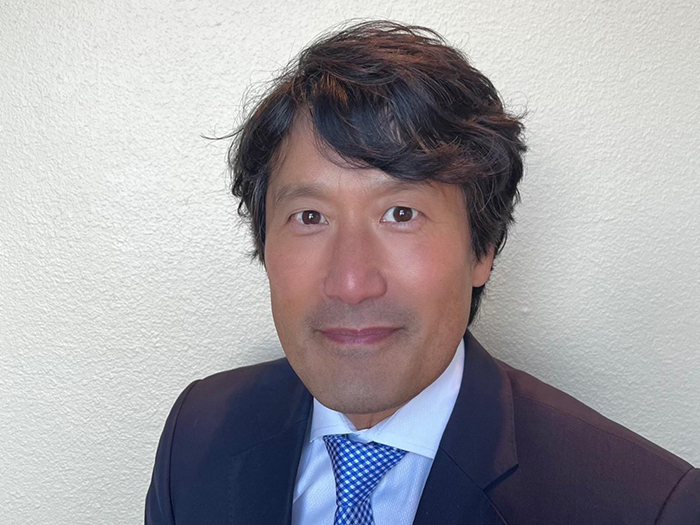Nurse Case Manager Chronicles
Empowering Injured Workers to Heal

An encounter with a patient early in her career as a case manager taught Lisa Armstrong a lesson that would influence her approach to all of her patients gong forward.
The case involved a worker who’d suffered a painful knee injury on the job.
“He was a good, hard-working, blue-collar worker,” she said. He was dedicated to his job and his family and delayed seeking treatment, instead working with a bad knee. When the pain became too unbearable, he finally filed for workers’ comp.
“He had a meniscus tear,” recalled Armstrong, a nurse case manager with Genex Services, which specializes in medical management. “And after everything, his knee never quite returned to the way it was before.”
Armstrong went with the injured worker to a follow-up appointment. She sat in and listened as the doctor explained the injured worker’s options.
“The doctor was hesitant to suggest what he would recommend for another patient [who didn’t have workers’ comp].”
As a nurse, she was cognizant of medical solutions that would have helped in this scenario. The doctor could have suggested knee replacement surgery, but instead he did not mention it.
Armstrong speculated that the injured worker’s status as a workers’ comp patient caused hesitation, and “because of pre-existing osteoarthritis and because he was a workers’ comp patient,” Armstrong said the doctor most likely feared workers’ comp would not pay for the surgery and so did not recommend it.
“But it’s not always about the claim. It’s about the person.”
Armstrong left the appointment feeling like she could do more.
“I felt like this patient needed empowerment.”
She spoke with the injured worker about knee replacement surgery, explaining it would be unlikely workers’ comp would cover it, but it was still an option he could pursue on his own. With Armstrong’s advice in mind, the injured worker had the surgery using his personal insurance.
“He was [planning] to live the rest of his life with a bum knee; now he can get back to work and be with his kids like before.”
It was a turning point for Armstrong: Empowering employees, giving them the information they needed to make their own choices, would be central to her case managing.
Building Trust
For Armstrong, who started her career as an acute care and rehabilitation nurse 15 years ago, the best thing nurses can do to ease the workers’ comp process is to build trust with injured workers. From that trust, empowerment will grow.
“An injury is an abrupt change of life. At the beginning, many don’t know which way is up.”
Armstrong speaks from experience. Her own daughter suffered a traumatic brain injury a few years back.
“I’m in the [medical] profession, and I was overwhelmed,” Armstrong said. “I can’t imagine what it’s like to not be a part of this [profession] and go through this type of event.”
Armstrong has a passion for educating workers during their transition from hospital to home. For her, case managing is both a healing process and an outlet to give back.
She said she was blessed with good people in her own journey; her hope is to help guide others.
“Sometimes a patient is left stumbling along in the dark. That first contact is important. It sets the tone [for the claim] early on.” — Lisa Armstrong, nurse case manager, Genex Services
Healing is a team effort, she added. Empowerment should be, too. Armstrong said when an employer shows they care about their worker’s needs, she’s seen more positive outcomes. Likewise, when a doctor talks to a patient and the insurance is accessible and responsive, workers tend to participate more in recovery.
Injury and illness of any kind can be scary. One day, a person is perfectly fine and the next it’s a slew of doctors, nurses, tests and monitoring. Add in the complicated world of workers’ compensation, and an injured worker can become overwhelmed and disheartened.
“The first contact a worker has after injury is their employer. I hear all sort of things, both good and bad,” said Armstrong. “Sometimes a patient is left stumbling along in the dark. That first contact is important. It sets the tone [for the claim] early on.
“My heart is with trying to get a patient the education that they need,” said Armstrong. This education, she explained, extends beyond getting the patient home; it’s education that teaches them about their injury or illness and gives them a sense of control over their own health.
It’s the practice of empowerment — giving injured workers respect and listening to their needs, wants and fears, while also educating them about their recovery.
“A patient who has been heard, who feels respected, actively participates in their recovery,” Armstrong said. “The underlying important piece of empowerment is information.
“Show them what their rights are as an injured worker. Nurse case managers have a code of ethics: Advocate for the patient,” she said.
Giving an injured worker the tools to understand the claims process, supplying them with background on their particular type of injury and opening up every option available for recovery — even options not available through workers’ comp — empowers an injured worker to feel confident and actively participate in return to work.
“It doesn’t always come down to dollars and cents,” said Armstrong. “A positive outcome is good, because you have a positive employee who won’t seek legal action. You have a patient with no reason to seek outside resources who wants to get back to work.” &











